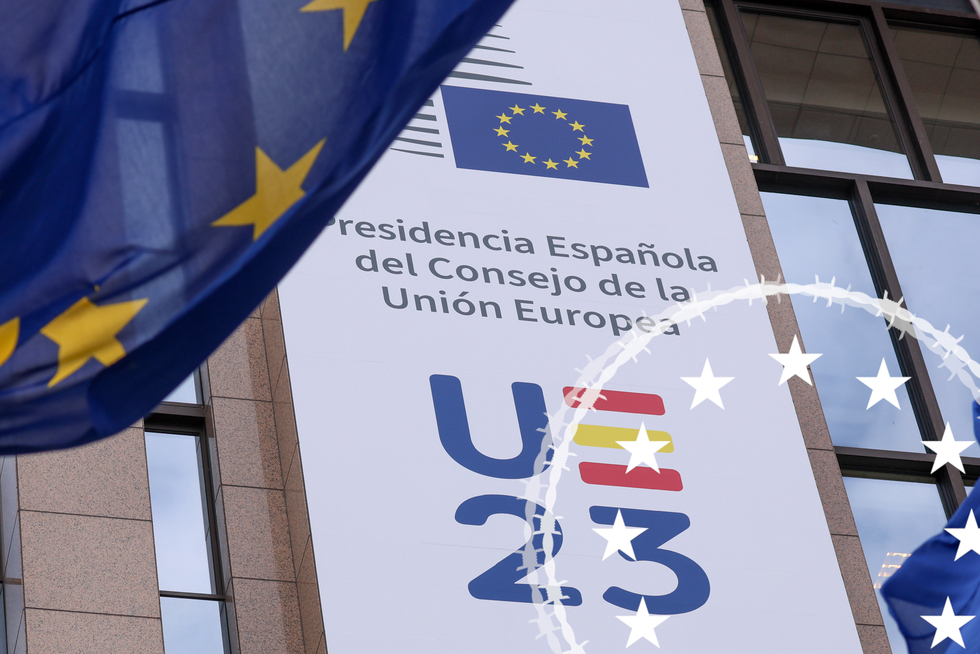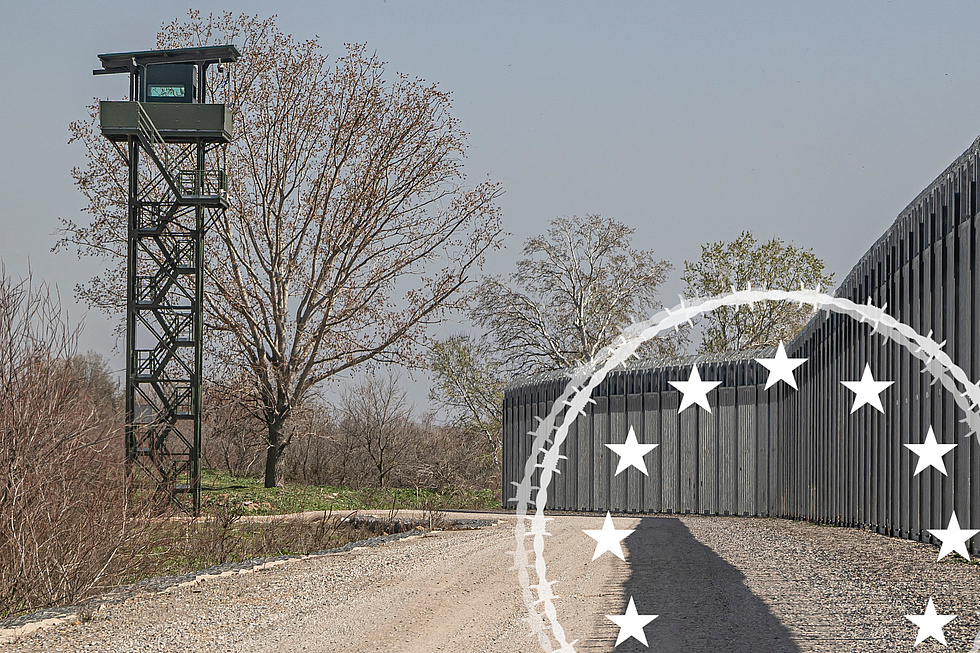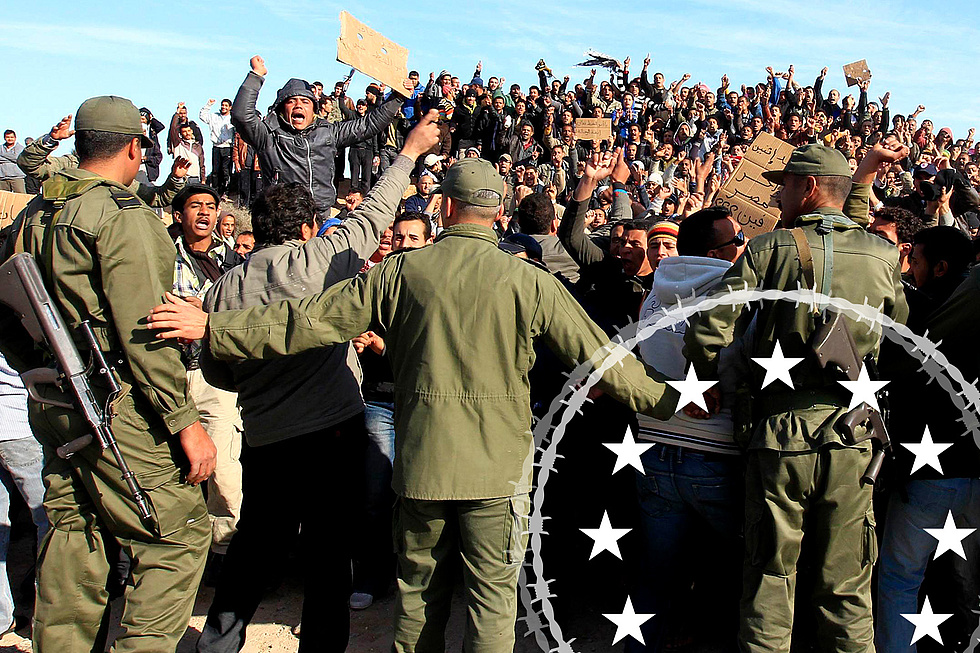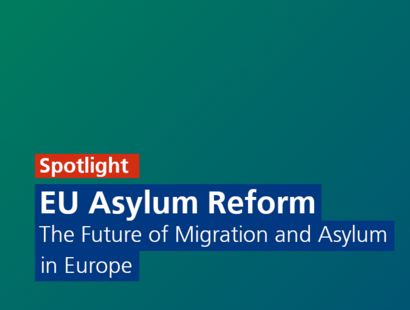Taking aim at sea rescue

The Mediterranean is a mass grave. According to the United Nations, more than 28,000 people have drowned or have gone missing there since 2014. It is a humanitarian catastrophe on the doorstep of Europe. On board the Geo Barents, the rescue ship of Doctors Without Borders, we are treating the physical and psychological consequences – the human cost of EU migration policy in the central Mediterranean. In order to counter this crisis, which is taking place not only in the Mediterranean, but along the entire external border of the EU, more and more European states are adopting a cynical strategy: more compartmentalisation, deterrence, deportation and the outsourcing of asylum procedures to non-EU states in order to reduce the number of people seeking protection in Europe. Civilian sea rescue is increasingly a thorn in the side. It is being obstructed, criminalised and defamed. The reform of the Common European Asylum System (CEAS) is a building block of this strategy. It will worsen the framework conditions for sea rescue.
States shirk their responsibility
With the end of the Italian-led Mare Nostrum naval operation in 2014, European states began to gradually abandon their proactive sea rescue operations in the central Mediterranean. The European-backed operation had shown that a humanitarian response to the deaths in the Mediterranean was possible. Since its end, civilian sea rescue organisations have been trying to close this rescue gap and are calling on states to fulfil their responsibilities, namely: state-led, proactive search and rescue operations with disembarkation to a place of safety as well as better coordination between coastal states and EU agencies, that share information with all parties involved. All this always with the aim of saving lives.
States attempt to criminalise sea rescue
In addition to the attempt by the EU and its Member States to shift responsibility to the countries bordering the Mediterranean to the south, work is also underway to tighten the legal framework for civil sea rescue – both at national and European level.
Italy has made various attempts to restrict sea rescue organisations in recent years: public defamation campaigns, the closed port policy, extensive port state control, legal proceedings, quarantine measures in the context of the Covid19 pandemic. At the beginning of the year, the government in Rome passed a new law that will significantly hinder the work of sea rescue organisations at sea. Law 15/2023 has already resulted in more than ten detentions of NGO ships. According to the law, NGO rescue ships must set course for the assigned port of disembarkation immediately after the rescue. In practice, the law forces civilian sea rescuers to ignore maritime emergencies. The ships are obliged to head for the assigned harbour immediately after they have rescued someone - even if only one person has been rescued. As a result, they are not allowed to rescue other ships in distress, regardless of whether they still have rescue capacity or not. A regulation that clearly contradicts the captain's duty to rescue people in distress at sea. The Italian authorities' practice of allocating distant harbours in northern Italy for the disembarkation of survivors after rescue operations makes the law even stricter. In October, the Geo Barents had to travel 1,160 kilometres to Genoa in northern Italy to bring survivors ashore. In 2023, Doctors Without Borders could have saved another 80 days at sea if the ship had been able to call at the nearest safe harbour in Sicily. Time in which the MSF teams would have been able to save more lives.
In Germany, the Federal Ministry of Transport has attempted to restrict the work of organisations with the “Ship Safety Act” – under the pretext that it is necessary to raise safety standards for smaller ships. For many organisations, this would have resulted in the cessation of their humanitarian work in the Mediterranean. Following fierce criticism, the draft was shelved. It is currently being revised.
And just the week before last week it became known that humanitarian work at Europe's external borders and sea rescue could be further criminalized, hidden in an amendment to the Residence Act. The criminal offence of "smuggling foreigners" is intended to criminalise altruistic "smuggling" into another EU or Schengen state. A monetary payment or other consideration for the assistance would not be required. It would be sufficient to act repeatedly or in favour of several foreigners. It remains to be seen to what extent this would be interpreted to the detriment of humanitarian actors and refugees. It is conceivable that simply giving a lift in a car, buying a train ticket or distributing food or water, or even calling at Italian ports with people rescued from distress at sea, would fulfil the offence. Ultimately, the courts will have to clarify this.
GEAS reform: sea rescue and the instrumentalisation of migration
With the CEAS reform, states have also found ways to make humanitarian sea rescue more difficult. The reform could create new incentives to block NGO ships and hinder or even criminalise civilian sea rescue. Screening, border procedures and the extension of the Dublin deadline will place an even greater burden on EU states with external borders and thus create even more incentives for states such as Italy to obstruct sea rescue organisations, in order to prevent further arrivals. Perhaps this is also why Italy insisted that a clause be removed from the Council proposal on the crisis regulation, which was intended to prevent sea rescue operations from being seen as an "instrumentalisation of migration". This would mean that the organisations could be accused of jeopardising or destabilising essential functions of the state, such as maintaining law and order or protecting national security. As a result, the Italian government could further restrict rescue activities and tighten laws and measures that criminalise civil society activities in the central Mediterranean.
However, the reform of the CEAS is not the only way in which ways of restricting civilian sea rescue are being sought at European level. In May 2023, a work programme entitled "Draft Roadmap towards a European Framework for Operational Cooperation on Search and Rescue in the Mediterranean Sea" was leaked. The plan shows that the Commission and the Member States want to harmonise the registration, certification and ship safety requirements for private vessels, which would also affect civilian sea rescue vessels. In light of the experiences in the Member States, it is to be feared that harmonisation will serve as a pretext for further attempts to obstruct sea rescue organisations.
Response to the humanitarian disaster in the Mediterranean
To summarise: Europe is witnessing a humanitarian catastrophe in the Mediterranean. The EU and its Member States are refusing to do their duty and are outsourcing responsibility to countries such as Libya and Tunisia. Actors trying to rescue people in distress at sea and draw attention to the disaster are being obstructed, criminalised and defamed. A humanitarian response to the deaths in the Mediterranean should include the following points:
- The EU and its Member States must establish a proactive, state-led search and rescue mechanism and deploy their own search and rescue vessels to the Central Mediterranean with the clear aim of saving lives at sea and ensuring disembarkation in a safe place.
- European coastal states and EU agencies must fulfil their duty to help people in distress at sea, coordinate rescue operations and pass on available information to all institutions capable of carrying out a rescue.
- The obstruction and criminalisation of civil sea rescue must be ended. Regulations, laws and practices that criminalise the rescue of people must not be introduced.
- The EU and national institutions must investigate incidents, shipwrecks and offences at sea. States and authorities must be held accountable for their failures.
- The EU and its Member States are called upon to develop accessible and safe routes for migration.
In addition, the EU and its Member States should put an end to deterrence policies and the outsourcing of border protection, which lead to violent closures, forced returns and refoulement as well as the denial of fundamental rights. The primacy of reducing migration by all means must be ended, because it costs human lives.
About the author

Felix Braunsdorf is a policy officer in the Berlin Advocacy Unit of Doctors Without Borders Germany. He works on the issues of displacement and forced migration with a focus on humanitarian aid in the context of migration policy, sea rescue and European border policy. Previously, he worked for the Friedrich-Ebert-Stiftung for seven years as a policy officer for migration and development on issues of development-orientated migration policy and the United Nations Global Compact on Migration. Felix Braunsdorf has degrees in political, communication and administrative science.
The opinions and statements of the guest author expressed in this article do not reflect the position of the editorial team or the Friedrich-Ebert-Stiftung.





